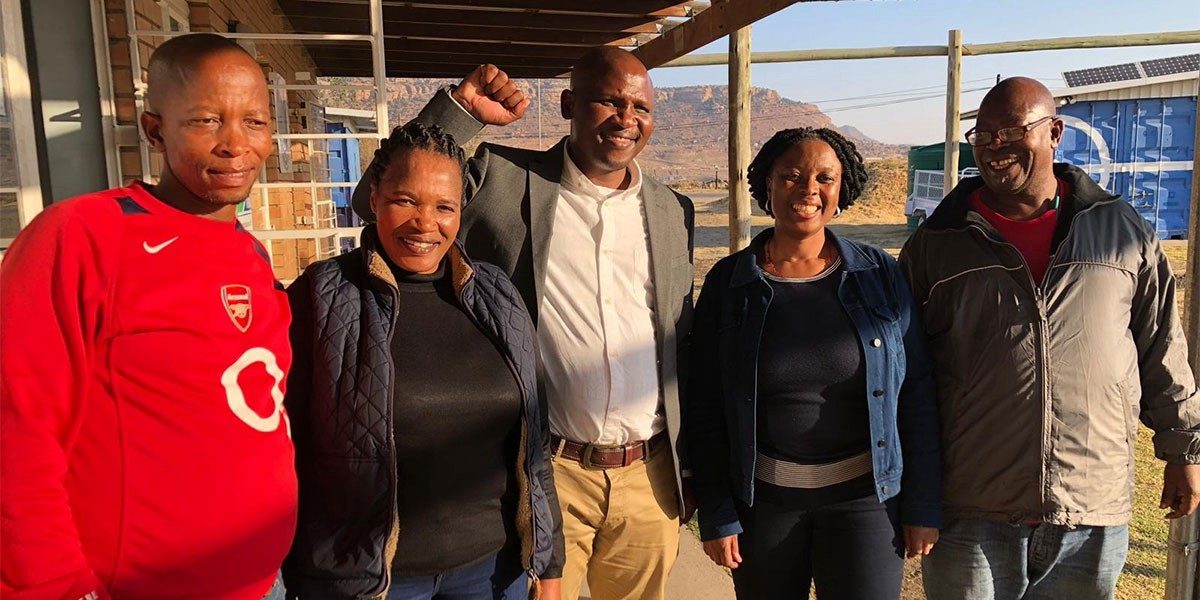The Future Belongs to Globalists

The Lesotho story came to light in August, with the news that brands such as Levi Strauss and Wranglers buying denim from the Nien Hsing company in Lesotho have signed an agreement with a coalition of unions and women’s groups made up of the Independent Democratic Union of Lesotho (IDUL), the United Textile Employees (UNITE), the National Clothing Textile and Allied Workers Union (NACTWU), Federation of Women Lawyers in Lesotho (FIDA) and Women and Law in Southern African Research and Education Trust-Lesotho (WLSA).
The agreement will implement a worker-driven social responsibility program focusing on rampant sexual abuse in the garment industry in Lesotho and create accountability for the global corporations that have been profiting from that abuse. The agreement was catalyzed by a powerful in-depth investigation led by the Workers’ Rights Consortium based in DC. The “Me Too” moment also played a role in moving the brands. It would certainly not have come to pass without the first, and the second created a far more receptive context to find a serious solution. But the third element in this powerful story is one of workers reaching across the globe to challenge corporate power. An astonishing journey from Lesotho to Immokalee and back helped build the path to this particular agreement. This story tells us the future we can build belonging to globalist workers.
Sexual violence, abuse and harassment are rife around the world in low-wage workplaces. In corporate supply chains, in which low-wage workers labor at the very bottom so profit can be made by the top, it is the norm. The groundbreaking Fair Food Program led by the Coalition of Immokalee Workers (CIW) and established in 2010 to protect the rights of farmworkers on the US eastern seaboard’s tomato industry created a stunning exception to this landscape of abuse. Over the space of only a few years, sexual harassment has dropped dramatically.
While it is well-documented that 80 percent of female farmworkers in US agriculture experience sexual harassment, workers on 75% of FFP farms reported no instances of sexual harassment of any kind, during the Program’s most recent season of implementation and enforcement. For the first time, likely in centuries of abuse of farmworker women on the eastern seaboard, in the first two years of FFP enforcement, two serial sexual predators were fired and barred from the industry as a result of the program. Since the start of the FFP, 42 supervisors have been disciplined for sexual harassment as a result of complaint resolutions or corrective actions that addressed audit findings. As a result, cases of rape and quid pro quo demands have disappeared.
When core organizations from the movement for the rights of garment workers around the world came together with this Fair Food Movement, formally under the umbrella of the Worker-driven Social Responsibility Network (WSR-N), the seeds of the Lesotho journey were planted. Looking for solutions and a model for the soul shattering abuse in the Lesotho factories, the Lesotho coalition visited Immokalee to learn and see this worker-driven solution in action. Shared problems give rise to shared solutions, and the farmworkers of Florida opened up their program and expertise for their transnational brethren. Together with the Solidarity Center, they will play a key role in assisting implementation going forward. As corporations merge and consolidate to become very more powerful, so must our movements. The victory emerging from the coming together of these movements is indisputable evidence of this need.
The Worker-driven Social Responsibility model has now taken root in three continents — Asia, Africa and North America, supported by allies but driven by workers themselves building a global movement. It is a hopeful and inspiring example of the global and just future we can build.
Cathy Albisa co-founded and is Executive Director of the National Economic and Social Rights Initiative.
